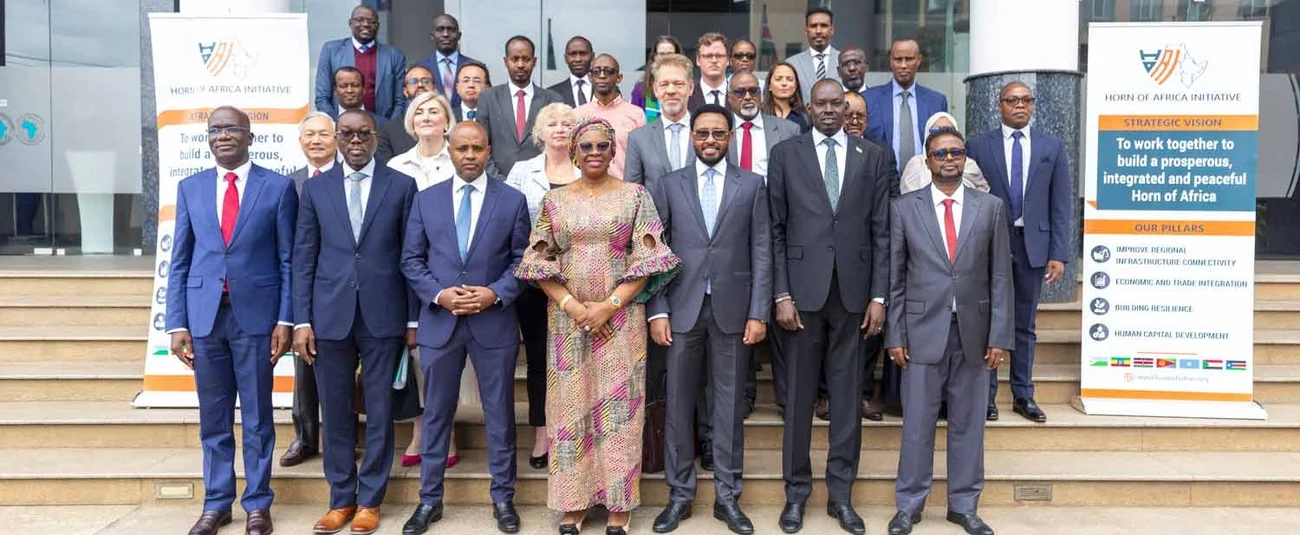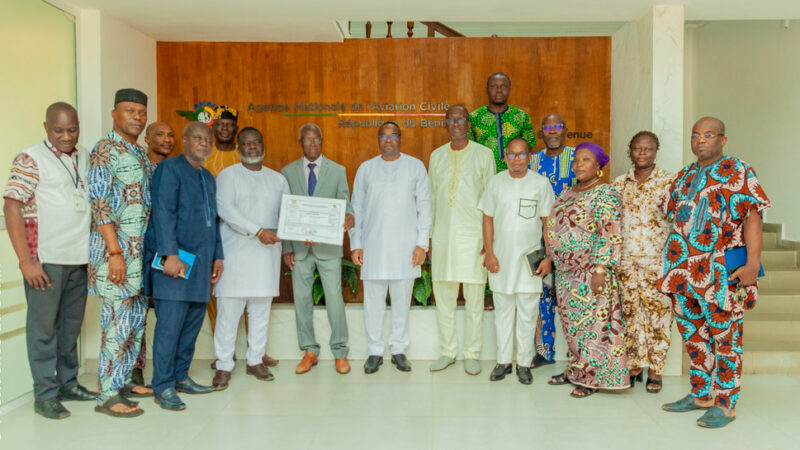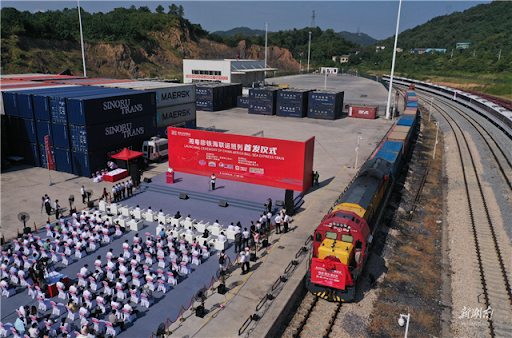Horn of Africa leaders unite to accelerate digital integration and regional growth

Finance ministers and development partners from the Horn of Africa have called for enhanced digital integration to boost trade, drive economic growth and promote regional stability during the 25th Ministerial Meeting of the Horn of Africa Initiative (HoAI).
Held in Nairobi, on July 14, the meeting was co-chaired by the African Development Bank’s Vice President for Regional Development, Integration and Business Delivery, Nnenna Nwabufo and Somalia’s Minister of Finance, Bihi Iman Egeh. Discussions underscored the critical role of digital integration in reducing trade barriers, boosting government service delivery and creating employment — particularly for the region’s youth.
“Digital technologies are shaping today’s economy and tomorrow’s industries. By embedding these technologies into our programs, we can not only improve inclusion but also leapfrog outdated development models,” said Nwabufo.
She called for digital integration a “central enabler” in each of the Horn of Africa Initiative’s pillars – trade, infrastructure, resilience, and human capital,
Learning through experience
Drawing from global and regional success stories, speakers highlighted the transformative potential of technology-led development. The ministers pointed to the Philippines as a strong example, where ICT has generated millions of jobs in business process outsourcing. Similarly, Kenya’s fintech innovation—especially the success of M-PESA—was cited as a model for scaling digital financial services across the region.
Participants urged governments to proactively foster digital ecosystems by capitalizing on the demographic dividend, identifying infrastructure upgrades, tighter regulatory reforms, and digital skills trainings as priorities to enable broader participation in the digital economy.
Minister Egeh reiterated the need for more coordinated regional efforts to create the enabling environment required for accelerated digital integration and expansion. He referenced the HoAI Digital Policy Matrix, adopted in 2023 which provides a blueprint on how to address key obstacles to achieving effective digital integration across the region.
Barack Makokha, Kenya’s Cabinet Secretary for National Treasury, underscored the importance of regionally-aligned public private partnerships and advocated for blended financing to reduce investment risk and expand digital access in underserved areas.
World Bank Vice President for Eastern and Southern Africa, Ndiame Diop, called for a comprehensive multi-pronged approach, combining cross-border coordination, large-scale financing, robust policy support, and digital infrastructure investments. He pointed out that such measures could transform digital integration into, “a powerful engine of economic transformation” for the Horn of Africa—ensuring no one is left behind in the digital era.
The meeting concluded with a shared recognition that sustained political will and the determination to implement a multifaceted approach are essential to unlocking the region’s economic potential and driving long-term growth.
The event also welcomed observers from the East African Community, Agence française de développement, and Shelter Afrique, reflecting strong regional and international backing for the HoAI in the development community.
About the Horn of Africa Initiative:
Launched in 2019, the Horn of Africa Initiative is a country-led, regional cooperation platform that aimed at tackling shared challenges and deepen economic integration within the sub-region in a coordinated manner. It focuses on four pillars: infrastructure connectivity, trade and economic integration, climate resilience, and human capital development. The initiative has mobilized $12 billion from development partners since its launch. Participating countries include Djibouti, Eritrea, Ethiopia, Kenya, Somalia, South Sudan, and Sudan. Support from key partners stems from the African Development Bank Group, World Bank, European Union, UK Foreign, Commonwealth and Development Office and the Government of Germany, with IGAD as a permanent observer.
Source : African Development Bank Group





